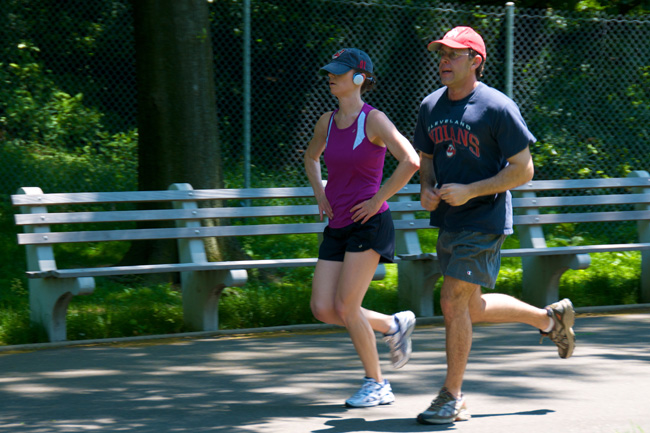Does sport cause incontinence?
Many people find incontinence not only slightly embarrassing but also amusing because many of us think that it is a natural part of aging.
As we age, we often talk about needing to run to the toilet to make it on time, and not drinking past a certain time in the evening as it will cause nocturnal lavatory visits and so on.

Many people also joke about accidental urine leakage themselves when they run or jump, with bouncing on the trampoline a source of much mirth, merriment and incontinence jokes.
In some ways, this is a good thing because for too long, incontinence was seen as an embarrassing problem that needed to be hidden. With growing awareness, people who suffer from urinary incontinence realise that they are not alone and that there is help out there in the form of exercise, medication and incontinence products.
Sport and incontinence – is there a connection?
Playing any kind of sport is not a direct cause of incontinence. In other words, just because you run three times a week doesn’t mean you are damaging your bladder, making it weak which means that it is inevitable that you will leak urine involuntarily yourself.
You can, however, when you play certain sports, leak urine because your pelvic floor muscles are either weakening or because the sport has an impact on your body.
Either way, playing any kind of sport should leave you breathless, sweaty and exhilarated but not smelling of urine. Here’s what you need to know…
#1 The pelvic floor muscles are like other muscles – they need to be kept in shape
As you know, playing or engaging in any kind of sport places pressure on the body. If your body is strong, supple and healthy, it responds better. And you will know that a well-toned muscle does its job far better than one that is underworked and weak.
The pelvic floor muscle is like a sling, running from the front of the body by the pubic bone to the base of your spine. It keeps all the bladder, bowels and so on well-supported. It also helps to control the urge to urinate as well as preventing involuntary escapes of urine and faeces.
Clench and release exercises are perfect for making sure the pelvic floor muscles stay strong and toned, preventing embarrassing accidents during an energetic sporting session.
#2 Empty your bladder
Stress incontinence is when there is an involuntary leak of urine as a result of coughing, sneezing, jumping, running and so on. Urge incontinence is when the bladder is irritated, leading to an over active bladder, sometimes known as OAB.
Running, jumping and so on causes an ‘impact’ to the body which can lead to minimal escapes of urine. Most sports people find that they ‘leak a bit’, more so if their bladder is full. Therefore, it makes sense to ensure that you empty your bladder before you run/play football/trampoline and so on.
#3 Drink plenty
However, the flip side of this is that many people think that cutting down on their fluid intake pre-workout is a good way of managing incontinence during exercise.
It isn’t.
The problem with this is that the bladder can become irritated from lack of fluid entering it, as well as your body failing to replenish its water supply. Don’t forget, when you work out you sweat which means you will be hurtling towards dehydration – and quickly, if you are not rehydrating by drinking water.
Most sporting stars will tell you that water is the best thing to drink. Carbonated energy drinks are full of sugar and unless you are thinking of being active for hours and hours, sticking with water is much kinder to your body, especially your bladder.
#4 Incontinence products
Even with pelvic floor muscles, emptying your bladder and all the other hints and tips of keeping yourself dry, there are times when you feel you need help in managing incontinence.
For some people, in extreme cases where it is a medical condition, medication can help to control an overactive bladder and help stem the possibility of accidental leakage. Other people will also rely on incontinence products to help them too.
Incontinence products does not necessarily mean ‘nappies’; small, discreet pads are perfect for trapping small leaks of urine, as well as helping to control odours. Sanitary ware does not offer the same protection, and can also make sensitive skin sore.
Understanding why you may be leaking urine when you exercise is important, as it can spell out what you need to do to get back in control of your bladder – and enjoy participating in sports once again.
HARTMANN Direct supply a wide range of incontinence products to suits all needs, including people with an active life and keen sporting commitments. From small discreet pads to products for heavy incontinence, there is something that will work with you and your lifestyle.

